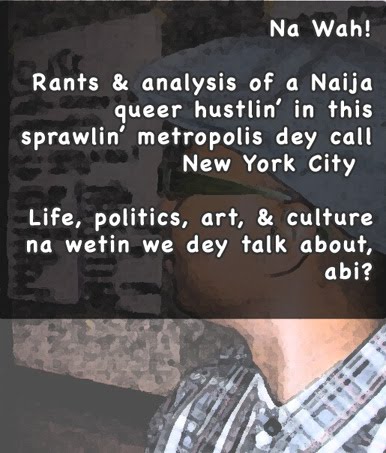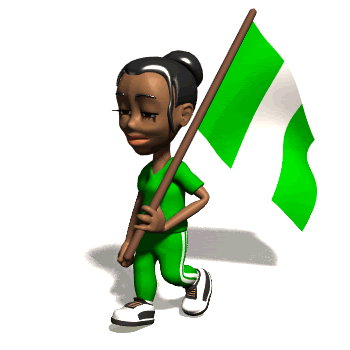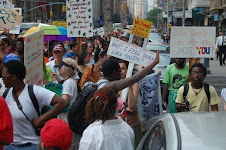Zebulon was barely a third full when we strolled in, happy to escape the cold, rainy night. The bar’s jet black walls lent it a cave-like feel. Lit candles on small round tables cast flickering shadows on patrons’ faces. Ten or so White people occupied rickety wooden chairs, just a few inches from the tiny stage, and drunkenly cheered on an uninspiring band. My companion and I looked at each other, the same question on our minds: how long do we have to put up with this noise before Meta and the Cornerstones takes the stage?
An agonizing thirty-five minutes later, Meta Dia, his band of five and their well worn musical equipment filled the stage and, suddenly, almost out of thin air, a large crowd materialized, primed and ready to move from the first note of music. At once Meta’s satisfyingly raspy and soulful wail filled that tiny bar and the drummer heralded a salute in response. The audience began to sway and jump as if in conversation with every lyric, every strum of the guitar. The socially conscious lyrics transported them to a different land where harsher realities abound. Meta launched into Somewhere in Africa, warning about the repercussions of greed and corruption, and called for an Africa free of western meddling. In Cornerstone he crooned, “His whole life/Sitting on the cornerstone with his pipe/Trying to get away from this broke life/Playing hide and seek with the cops/Make money or die,” telling the story, in griot-like fashion, of a life with limited or no options and opportunity – a life of despair.Your browser may not support display of this image.
The sound was reggae, but not exactly. It spoke to the front man’s Senegalese roots, yet it pulled from the West African, Trinidadian, and Middle Eastern backgrounds of the other band members. As Meta himself aptly put it in the June, 2009 edition of Afropop Live, “a lot people say ‘that’s a reggae band’ I’m just going to say, yeah [we’re] a reggae band, but to me its modern music because I just like to combine things together like the Bossa Nova with the African vibe with the Spanish vibe.” Meta’s musical journey, from being a staple in the Dakar hip hop scene to co-creator of one of the hottest, and most unique soulful reggae sounds in NYC’s live music movement, seemed to be the backdrop for every song. According to the band’s blog (metaandthecornerstones.blogspot.com), at the tender age of 14, Meta began his career as an MC on the streets and, later, stages of Dakar. A dream to move to the US, learn English, and achieve success as a rapper, brought him to New York City. Upon arriving, he discovered that the subway stations were essentially training grounds for innumerable artists and performers. This sealed his fate. As far as he was concerned, New York was the place to be if one wanted to grow and make it as a musician. After learning English, he came to understand and really appreciate the socially conscious and poetic lyrics of the Bobs (Marley and Dylan). As he states in the same edition of Afropop Live, “those people just inspired me big time and I just put it [poetic lyrics] in this reggae rhythm. I would put it [poetic lyrics] in any rhythm. I don’t mind. I just want to say how I feel.
After having a successful stint with his first group, YALLA SUUR EN (God Bless),a band that garnered a Best Hip Hop/Reggae nod from the NYC French Cultural Center in 2000, he went on to form Meta and the Cornerstones in 2002. Along with fellow members Adrian Djoman (bass), Andre Daniel (Keyboards), Daniel Serrato (Guitar), Ian Joseph (Drums), and Shahar Mintz (guitar), the bands has reached local celebrity status, and have played to packed houses all over the city. They have also performed alongside some of the biggest names in reggae including legends Steel Pulse and Luciano. In 2007, at the request of international superstar Youssou N’Dour, they performed at his Annual ‘African Ball’ concert at the Nokia Theater in New York City.








No comments:
Post a Comment